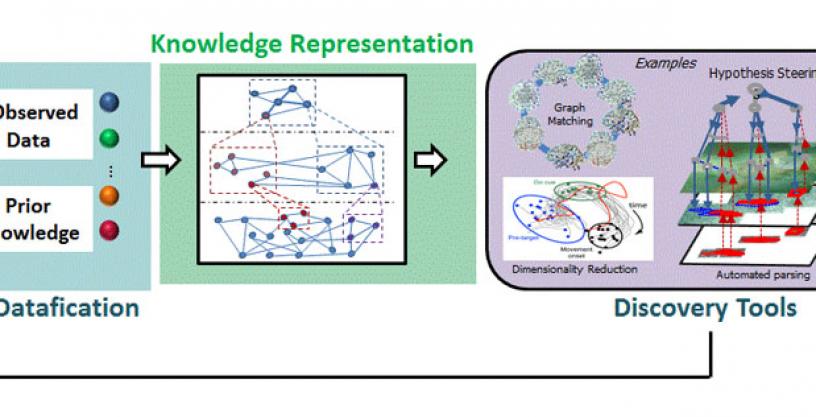
SIMPLEX aims to develop computer-based math models that exploit complex scientific data from diverse technical fields to help speed discovery, analysis and hypothesis generation
Sep 11, 2014
The exponential growth of diverse science data represents an unprecedented opportunity to make substantial advances in complex science and engineering, such as discovery of novel materials or drugs. However, without tools to unify principles, results, models and other kinds of data into a single computational representation, it is difficult to relate data from any one scientific problem or area to the broader body of knowledge.
DARPA’s Simplifying Complexity in Scientific Discovery (SIMPLEX) program seeks to develop unified mathematical frameworks and tools for scientific data analysis. The ultimate goal of the program is to facilitate big hypothesis generation and accelerate discovery by correlating data across scientific domains.
"The objective of SIMPLEX is to substantially advance our ability to represent complex forms of knowledge in computable form," said Reza Ghanadan, DARPA program manager. "We seek to fuel creation of the next generation of analytic tools that can exploit scientific data in new smarter ways by leveraging prior knowledge as the context of discovery while exploring the hidden relations in complex data. The iterations of new discovery and learning from accumulated knowledge help accelerate the rate of discovery."
The program aims to create generic tools, which would apply to qualitative and quantitative knowledge including scientific principles, constraints, models and functional relations. To validate new representations and tools, SIMPLEX also plans to use multiple scientific and engineering use cases. Domains of interest include neuroscience, gene-protein disease networks, materials science, climate science, autonomous systems, and cyber-physical systems.
The SIMPLEX program seeks expertise in areas such as mathematics, statistics, computer science, data science, and from domain-specific scientists. The Broad Agency Announcement (BAA) solicitation was released today and is available on FedBizOpps here: http://go.usa.gov/VpYB.
###
Media with inquiries should contact DARPA Public Affairs at outreach@darpa.mil
